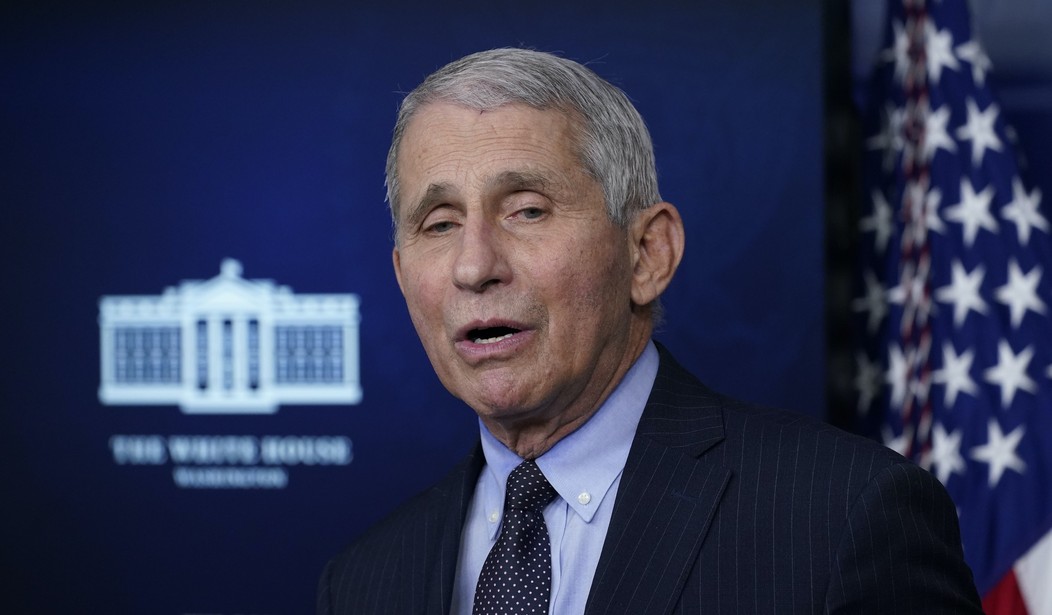You would think that after the COVID-19 pandemic disaster, people would be a lot more skeptical of the claims that medical professionals and scientists make since they lied to us regularly, but humanity has proven once again that it is indeed fallen.
After all, during the pandemic, people with common sense faced shame for not "trusting the science" and wearing masks, even though scientists told us at the beginning that masking up was pointless. Then there's the vaccine, which experts first said would help us reduce infections, but then the story changed. Suddenly, the jab would not prevent folks from contracting COVID but would reduce the severity of the illness.
Yeah, that didn't happen either.
And how about all those scientists who touted the vaccine as being safe? How many cases of heart inflammation and sudden death resulted from the jab? You'll never get a straight answer from the powers that be, but let's just say that the number is large. A lot of those who experienced complications from the vaccine were also young and healthy.
According to a report from Nature, a new study has found that trust in scientists is very high right now. I think people are like the woman in an abusive relationship who gets knocked around but sticks around because she believes the man will be different this time around.
People around the world have high levels of trust in scientists, and most want researchers to get more involved in policymaking, finds a global survey with more than 70,000 participants. But trust levels are influenced by political orientation and differ among nations, according to the study, which was described in a preprint posted online last month.
“The overall message is positive,” James Liu, a psychologist from Massey University in Auckland, New Zealand, said about the survey results. “Even in the wake of the COVID-19 pandemic, which could have been highly polarizing for people’s trust in scientists, trust levels are fairly high across a range of demographics.”
“The researchers use a more robust measure of trust compared to previous studies that focus on just one or two dimensions,” Nan Li of the University of Wisconsin-Madison, whose work focuses on how the public interacts with science, said. “I really admired the authors’ ambitions of doing this type of study, which includes researchers from all over the world.”
Social scientist Viktoria Cologna at Leibniz University in Hanover, Germany, surveyed a total of 71,417 people from 67 countries. The respondents indicated their level of agreement with a dozen statements concerning the integrity, competence, openness, and benevolence of scientists, rated on a scale from 1 to 5. The higher the score, the more they trusted professionals working in the scientific community.
Again, it amazes me that so many people have seemingly already forgotten what scientists did during the pandemic. Many so-called "medical professionals" lied to help push a pro-vaccine and pro-mask agenda. They betrayed the trust of the people, which should lead us all to be more skeptical about the things the scientific community tells us, but alas, it looks like humanity has learned nothing.
Across all participants, the average trust score was moderately high, at 3.62. On a global scale, participants perceived scientists as having high competence, moderate integrity, and benevolent intentions. The overall rating of openness to feedback was lower: 23% of participants think that scientists pay only somewhat or very little attention to other views. Three-quarters of people agreed that scientific methods are the best way to find out whether something is true.
Participants from Egypt had the most trust in scientists, followed by India and Nigeria; in Albania, Kazakhstan, and Bolivia, people had the least trust. Participants in countries including the United States, United Kingdom, Australia, and China had above-average levels of trust in scientists, whereas those in Germany, Hong Kong, and Japan had below-average trust levels.
The survey also discovered a link between trust in scientific professionals and the participant's political affiliation and ideology. Those who leaned more toward the left had a much higher trust level than those who tended more toward the right. Why does this not surprise me? The vast majority of progressives claim not to be religious, but right here is the proof of the exact opposite.
Leftists are so convinced that humanity can perfect itself through social engineering and science that they will place all of their faith and hope in it, even though the institution they trust for its salvation has repeatedly lied and taken advantage of them. Science saving humanity is a belief. It is not a fact. That is faith. When leftists do anything science commands, following and obeying its tenets, you have yourself a religion.
The team saw this association at the country level in Canada, the United States, the United Kingdom, Norway and China. But of the 67 countries surveyed, in 41 — including New Zealand, Argentina and Mexico — the team found no significant association between political orientation and trust. And in some countries, including Georgia, Egypt, the Philippines, Nigeria and Greece, left-leaning views were linked to lower trust.
“These contrasting findings may be explained by the fact that in some countries right-leaning parties may have cultivated reservations against scientists among their supporters, while in other countries left-leaning parties may have done so,” the researchers stated in the preprint.
For example, New Democracy, Greece’s right-wing ruling party, has since 2020 consistently cooperated with researchers in implementing a public-health agenda, which could explain why in that country a right-leaning political orientation is linked to higher trust in scientists.
At the end of the day, the safest way to approach both politics and science is to heed the advice of Agent Fox Mulder from "The X-Files."
Trust no one.









